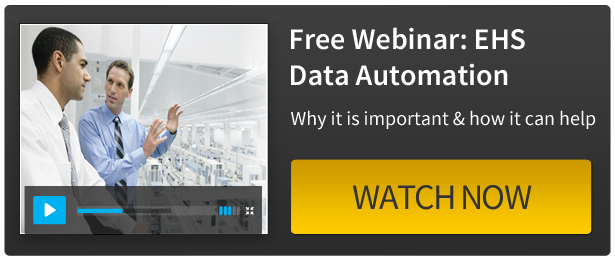When it comes to environmental compliance, managers typically fall into one of two camps: Spreadsheet specialists and environmental experts. Which side do you fall on?

Meet the Spreadsheet Specialist
The spreadsheet specialist can be found working in any type of business and in any industry. They work hard to keep their companies in constant compliance with environmental regulations using spreadsheet software and EPA-provided electronic reporting tools.
He or she is a master of building complex spreadsheets that can hold page after page… after page of environmental, health and safety data. They know exactly where everything can be found and are the go-to person when it comes to locating an important piece of data or knowing where to enter chemical component data from a new MSDS. In fact, they are often the only person in the entire company that knows how to read the official EH&S spreadsheet (better hope they don’t take a sick day!).
Their typical work day is composed of manually entering data into their spreadsheets for a few hours every day. How else are they going to keep track of their daily emissions records, equipment operating parameters, and other environmental KPIs? When they aren’t typing in data, they’re busy using Excel formulas and standard emission factors to quantify VOC emissions and other hazardous air pollutants (HAPs). Spreadsheet specialists are highly skilled at spotting and fixing those small errors that result from trying to use Excel formulas to do complex emissions calculations.
Like most environmental professionals, the spreadsheet specialist has a background in environmental management studies or industrial hygiene – but they put their computing skills to the test more often.
The spreadsheet specialist’s biggest challenge, when not busy typing in data, is trying to find the time to start the next sustainability project. And then how would you fit sustainability into a spreadsheet?
And in This Corner… Environmental Experts
Environmental experts can also be found working in any type of industry and for any size of business. Like spreadsheet users, they work hard every day to keep their companies in compliance. The main difference, however, is how they go about doing it.
Environmental experts are more concerned with what environmental data means and not where to put it. That’s because they typically have an automated environmental management system (EMS) that takes care of the basics of data management for them. For example, when a new chemical gets imported from a vendor, their automated system uploads the data directly into an electronic database in about 5 minutes. That way, the environmental expert can actually analyze the environmental impact of the new product rather than focusing on manual data entry.
Unlike the spreadsheet specialist, the environmental expert spends most of their time reviewing data instead of typing it. They know where their compliance stands because they carefully investigate daily – and even sometimes hourly – emission reports. And because they have the time to analyze the environmental impacts of materials, they can make more informed decisions about what to allow into their facilities.
When it comes time to actually submit a report about those compliance indicators, the environmental expert generates a report with the click of a button. The real work of reporting for the environmental expert is to review the report to make sure it contains everything it needs to and that an emission source wasn’t left out. It can all be done in about half the time as the spreadsheet specialist’s report but with less than half the stress.
Like with most modern environmental managers, their biggest challenge is sustainability. But for them, it’s not about finding the time, it’s all about figuring out which project to do next. Which will be more profitable? Which will have the biggest impact? And what will be the best way to measure sustainability?
So You Want to Be an Environmental Expert?
It’s not as difficult as you think to switch from being a spreadsheet expert to an environmental expert. There’s really only one thing that separates them: time.
When you’re stuck using spreadsheets and spending time fixing all their shortcomings, you just don’t have enough time to actually review the data, ensure your reports are stellar, and get involved in important sustainability projects.
In short, a spreadsheet specialist is just an environmental expert without the time to use their expertise.
And the best way to reclaim all that lost time? Ditch the spreadsheets and automate as much of your environmental data management processes as possible. The more you can automate and streamline things, the more time you’ll have to spend to be an expert. Learn how we’ve helped some large international manufacturers automate their environmental data management and move from using spreadsheets to being compliance experts by watching the webinar below.
This Blog Was Co-Authored By:


Tags:
Environmental Management
October 25, 2012

Comments